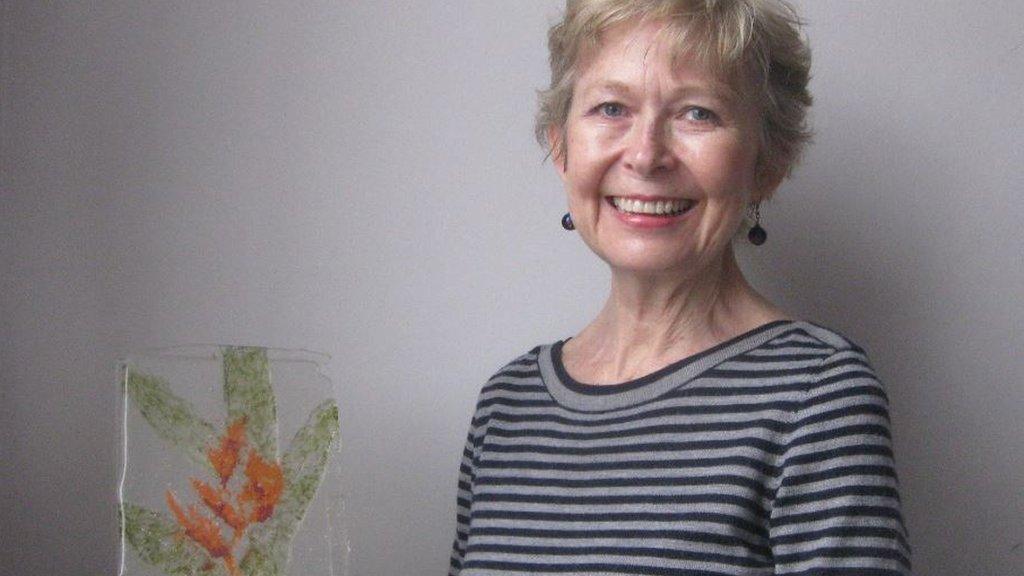A passion for recycling: 'It's my day job'
- Published

Louise has been able to create artwork out of recycled glass
People are often keen to do their bit to help the environment but don't know where to start.
This may have to change if new recycling laws are introduced in England.
'We have excellent recycling facilities'
For Louise Truslow, from Southend, who takes old glass bottles and creates artwork, recycling is not just good for the environment, it's "my day job".
And her council provides excellent recycling facilities.
She says: "We're provided with separate containers for food waste, paper and other recyclable materials."
There is an annual fee for garden waste, if residents choose to have that collected. There are white sacks available for textiles. And waste electrical items can be left out for collection.
"Compared to other areas with three weekly collections and poor recycling, I think we're very lucky," Ms Truslow, says.
'What about people who can't leave their homes?'
Lu Frankland, of Chatham, Kent, who is disabled, recycles about 70% of her household waste
"This covers items that are separated, cleaned and put in our recycling bin," she says.
But while she thinks government plans to introduce a deposit scheme are a good idea, she is concerned disabled people and other vulnerable groups could end up losing out financially.
"It's fine when you are able but it adds a huge burden to those who struggle," she says.
She would have to save up enough bottles to justify taking a taxi to the nearest shop with deposit-return facilities.
And "even then, any money gained won't even cover the taxi return".
'We never asked for products to be packed in non-recyclable materials'
Robin Faulkner, from Warlingham, Surrey, who has been recycling for 20 years, using various schemes as much as possible, says although a number of supermarkets say they haven't sent any waste to landfill for a number of years, this doesn't take into account plastic packaging used on food.
"This packaging is then passed on to customers to dispose of," he says.
In many cases, gas is added to vegetable products wrapped in this plastic to prolong their shelf-life.
And as this packaging is so flimsy, it can often end up as rubbish on the streets.
Mr Faulkner feels the main solution is to hit businesses in the pocket.
"Fines should come from pre-tax profits so that shareholders who reap the rewards should be the ones to pay the fines," he says.
"We as consumers have never asked to have products packaged in non-recyclable materials."
By Bernadette McCague, UGC and Social News
- Published14 December 2018
- Published18 December 2018
- Published18 December 2018